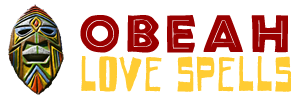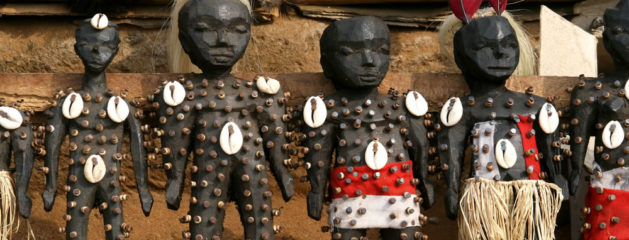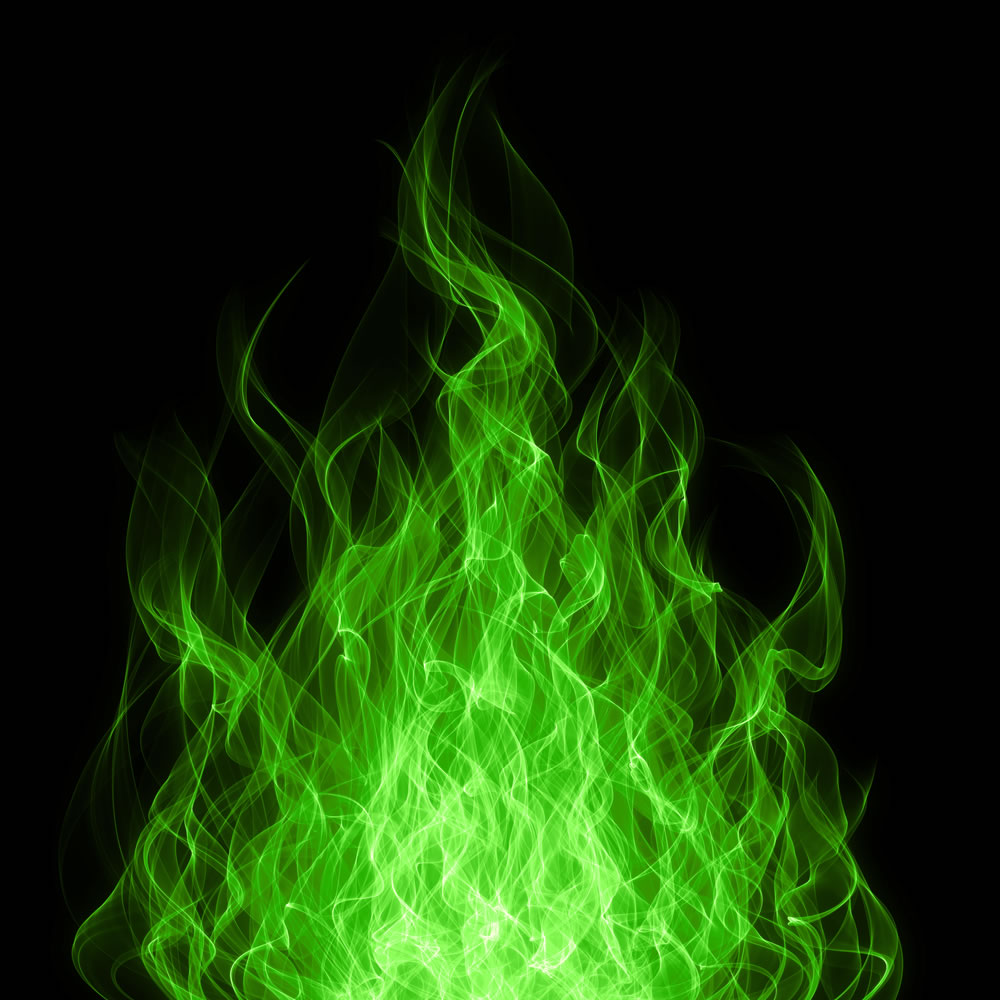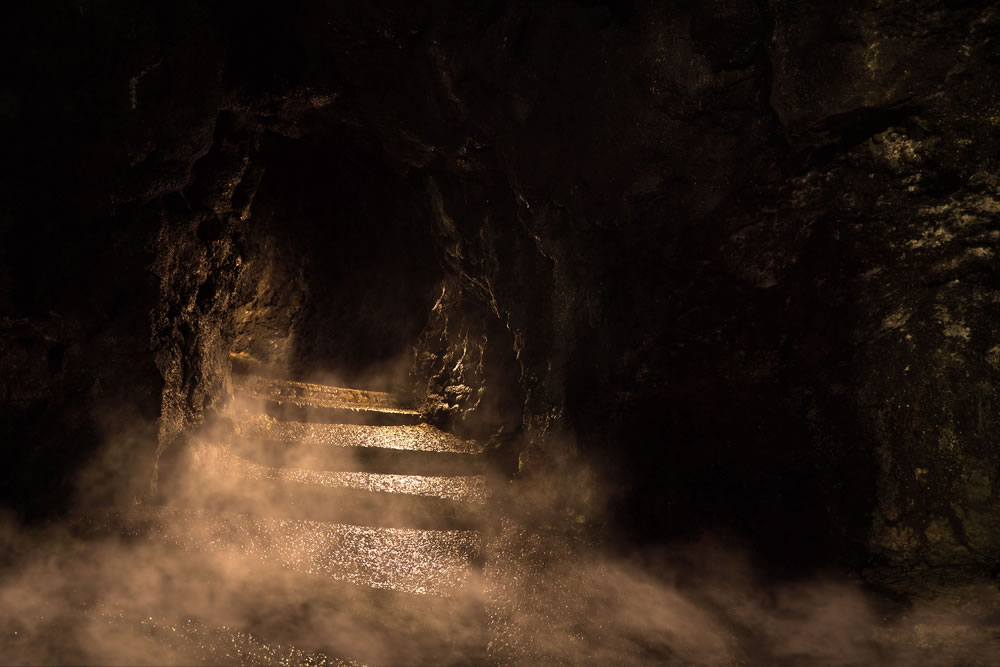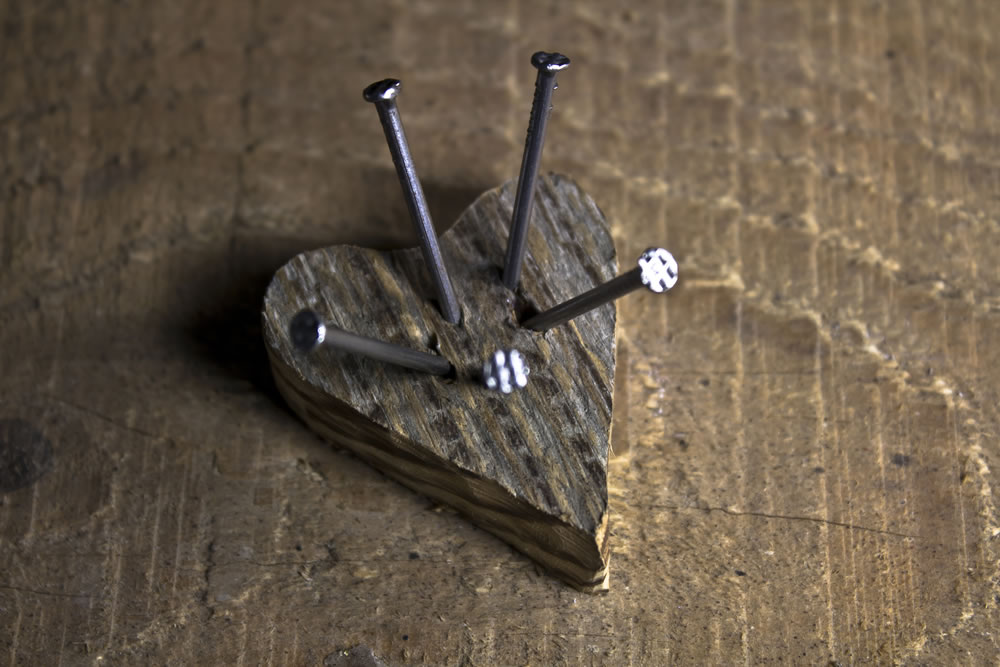The actual origins of the practice and rituals of Obeah have been hotly debated. The true origin of this extraordinarily powerful metaphysical practice no doubt stretches far beyond recorded history and the consciousness of modern scholars. However it is generally agreed that what is most often referred to as Obeah had its origin among the early slave trade. African slaves brought much more with them than their pain and suffering to the Caribbean islands.
African religions though varied from tribe to tribe and geographical area, all believed in an almighty “God” or Higher Power. Beneath this Being was a pantheon of lesser deities. These deities had direct contact with humans, and it was through them that God’s work was affected upon the planet. The slaves, forced literally in chains to a haphazard at best introduction to Christianity, saw the Pantheon of the Father, Son and The Holy Spirit as much the same as the Seven Powers or Deities of their religions. The resulting amalgam of African, Native Caribbean, and Christian religions became known alternatively as Creole, Santeria, Voodoo, or the often maligned Obeah. Putting aside the obvious racial prejudices that existed at the time, the ease for which the rituals and symbols of Christianity adapted to the Africans way of thinking should impress upon the reader how similar the belief systems actually are.
The Obeah Man or Obeah Practitioner will appeal to these deities, and through them work their love spells, love charms, and otherwise bring wealth, power and good fortune to themselves and their followers. The names of the Seven Powers or Deities vary somewhat among African faiths and traditions, but basically they are:
Obatala
Obatala is The Creator, The God, of whom all of the other lesser Deities or “Orishas” are but aspects. As the all powerful force of the Universe Obatala is considered to be beyond the sphere of direct communication.
Eleggua
Eleggua also called Exu or Eshu -is the Deity of Gates and Doorways. He is the messenger of the Gods. All other Deities must be contacted through Eleggua. Eleggua is also the guardian of the doorway between the mundane and spirit worlds.
Ogun
Ogun – is the Deity of the warriors. Closely associated with Blood, Iron and War, Ogun is more than the God of War however. He is a primeval force, and the patron of tools, and civilization. Much of the “magic” of modern society – technology –owes its origins to Ogun. To the Obeah Man Ogun is a powerful healer, especially of those wounded in warfare, or those suffering from blood diseases.
Chango
Chango also Xango or Shango – is the Deity associated with lightning, dance, and passion. He is a powerful warrior and the Spirit of Vengeance. The Obeah Man who seeks to right a wrong that has been done, especially to a woman, will seek the aid of Chango.
Oya
Oya or Yansa – is the Goddess of the Storm. She is a powerful female warrior, the wife of Chango. She is the Deity of female strength and righteous anger.
Yemaya
Yemaya – To the practitioners of Obeah, Yemaya is the Virgin Mary. She is the most beloved among the African Deities. She is the guardian of women, childbirth, and fertility, and is the primary source of energies for the mystical arts, as she is the ruler of the subconscious and of creative endeavors. According to legend Yemaya is known to select her own apprentices. Throughout time people have disappeared from their villages and returned as powerful Obeah Men or Obeah Woman, to tell of having learned the ways of magic and healing directly from Yemaya.
Oshun
Oshun – is the Goddess of flowing waters – rivers, brooks, and streams. She is the Deity of love, passion, and sensuality, as well as money and prosperity, and as such features prominently in the love spells and love charms made by the Obeah Man. To bring love wealth and good fortune Oshun enjoys offerings of honey, copper jewelry or coins.
Once you have read these descriptions of the deities of the Obeah Faith you can easily find an analog Greek or Roman Deity, Native American Totem, or Christian Patron Saint for that matter, to any of them. These similarities must lead the reader to the inescapable conclusion that we are one people that share a common racial connection as humans to the spirit world.
